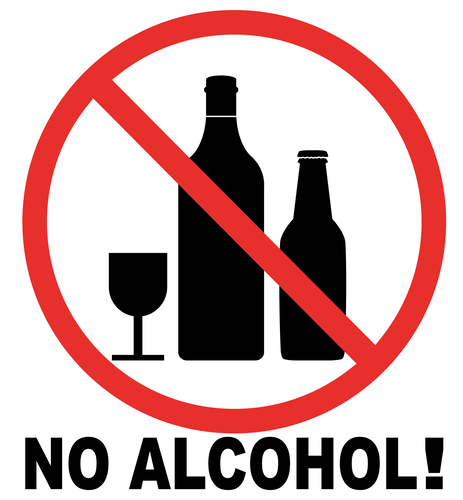12 Steps of AA: The Best Guide for Lasting Recovery
Living with the principle of service means it’s your responsibility to help others as you were helped when you first started to work the 12 steps of AA. To find out, it’s important to carefully explore the principles of AA. For Wilson and Smith, surrendering to a ‘higher power’ was an integral part of their plan’s development.
Finding faith in a Power greater than ourselves
Understanding relapse is a crucial part of the recovery process when working through the 12 Steps of AA. It’s not just about avoiding the bottle; it’s about recognizing the emotional and mental triggers that can lead us down that slippery slope again. Relapse can happen to anyone, regardless of how far https://sanadfs.com/how-long-does-heroin-stay-in-your-system-and-what/ along they are in their journey. In Step 6, you become entirely ready to have your higher power remove these defects of character.
The spiritual growth in AA is transformative, not only healing the individual but also radiating outward, influencing others in their circle and the wider AA community. The journey towards reclaiming one’s life from the grip of alcohol begins with the honest admission of powerlessness over alcohol. This pivotal first step isn’t about admitting defeat; rather, it’s a courageous acknowledgment of the reality that alcohol has taken control, rendering one’s life unmanageable. It marks the first glimmer of hope, as through this acceptance, individuals open themselves to the possibility of change. Embracing vulnerability, members of the AA community start to peel away the layers of denial and confront the truth of their addiction head-on.
- Understanding relapse is a crucial part of the recovery process when working through the 12 Steps of AA.
- More personal stories in meetings emphasizes that one isn’t alone in their struggles, fostering a supportive network critical for someone looking to maintain their recovery.
- This step allows us to face the truth about our past while preparing to mend it.
- This doesn’t necessarily refer to a religious belief but rather an acknowledgment that something greater—be it a higher power, the community, or even the process of recovery—can help you regain control.
- Central to AA’s philosophy is the idea that addiction is not a failing of character, but rather a condition that can be managed through a combination of self-awareness, support, and a willingness to change.
Find Your Strength, Discover Your Path
Regular attendance at AA meetings is a cornerstone of maintaining sobriety and ensuring continuous progress on the journey of recovery. These meetings serve as a constant reminder of the commitment to sobriety and provide a structured environment where individuals can share their experiences, victories, and challenges. By engaging regularly with the AA community, attendees reinforce their resolve to abstain from alcohol, drawing strength from collective wisdom and the shared desire for a healthier life. Additionally, consistent participation helps in learning new coping strategies and offers a platform for receiving guidance on avoiding potential triggers and relapse scenarios. It reminds individuals they are not alone in their struggles, providing a sense of belonging and mutual support that is vital for long-term recovery. The 12 principles of AA underpin the 12 steps, representing values of honesty, hope, faith, courage, integrity, willingness, humility, brotherly love, discipline, perseverance, spiritual awareness, and service.
Overview of the 12 Steps of AA for Effective Recovery

Humility is one of the simplest principles to understand because it’s straightforward. When you’re humble, you’re cognizant of the fact that you’re not a major part of the bigger picture. Humility in daily practice means never seeing yourself as more important than you are. In step 4, you made a catalog of your past, and in step 6, you admitted them and released yourself from the guilt and shame.

It’s a journey that empowers individuals to reconstruct their lives on foundations of resilience, empathy, and purpose. Following the act of making amends, it is vital for individuals on the recovery path to engage in a continual personal inventory. This ongoing process of self-reflection helps identify and promptly admit to any new wrongs. It’s an exercise in maintaining the personal and moral growth achieved through the earlier steps of the AA program.
How to Guide Sobriety Tactics at AA Meetings in Utah
Explore our AA Meeting Directory to find support near you, or use our Sobriety Calculator to track your progress and stay motivated. For more guidance, inspiration, and recovery tips, be sure to visit our AA Blog. You can always return to our AA meetings near me Home Page to access everything you need in one place. After getting to know its principles, you may want to try the program or include it as part of your post-rehab aftercare plan. While participating in the 12 steps of recovery can be beneficial for many people, consider the advantages and disadvantages of these programs before you decide if this approach is right for you. Twelve-Step meetings are considered the “fellowship” part of the AA mutual support groups, where people come together and share their experiences.
Alongside the support found in meetings, the AA Meetings Directory offers a range of sobriety tools designed to reinforce one’s commitment to recovery. These resources, including the Sobriety Calculator, serve not just as reminders of the progress made but also as sources of motivation to continue the journey. Navigating through aa definition challenges becomes significantly more manageable with these tools at one’s disposal, offering both practical support and emotional encouragement. They remind individuals that each day sober is an achievement to be proud of, thereby enhancing their resilience against the temptations of relapse.
Understanding the power of Alcoholics Anonymous principles

Many other organizations have adapted the 12 Steps framework for various addictions and compulsive behaviors, showcasing its versatility and effectiveness in promoting lasting change. Remaining actively engaged with the AA community is a dynamic means of empowerment that elevates the recovery experience from mere survival to thriving. Engagement can take many forms, from attending meetings and participating in discussions to volunteering and serving as a sponsor for newcomers. This involvement deepens one’s connection to the principles of AA, reinforcing personal commitment to sobriety while contributing to the strength and unity of the community. Additionally, engagement offers the opportunity to witness and partake in the transformative journeys of others, providing a profound sense of purpose and fulfillment.
Twelve Steps and Twelve Traditions ASL – Step One
The key to AA’s success is the Twelve Steps – a structured program that helps individuals move from addiction to a meaningful life in recovery. These steps provide a framework for personal change, addressing not only the physical aspects of addiction but also the emotional and spiritual parts. Alcoholics Anonymous (AA) is a lifeline for millions around the world who want to overcome alcohol use disorder. This incredible community has changed countless lives with its proven method of recovery, which offers a way to Sober living home sobriety that combines spiritual growth with practical actions. S.O.S. is focused on helping people overcome addictions by focusing on their values and integrity rather than embracing a higher power. It encourages members to make sobriety the top priority in their lives and take whatever steps they need to stay on the path to recovery.